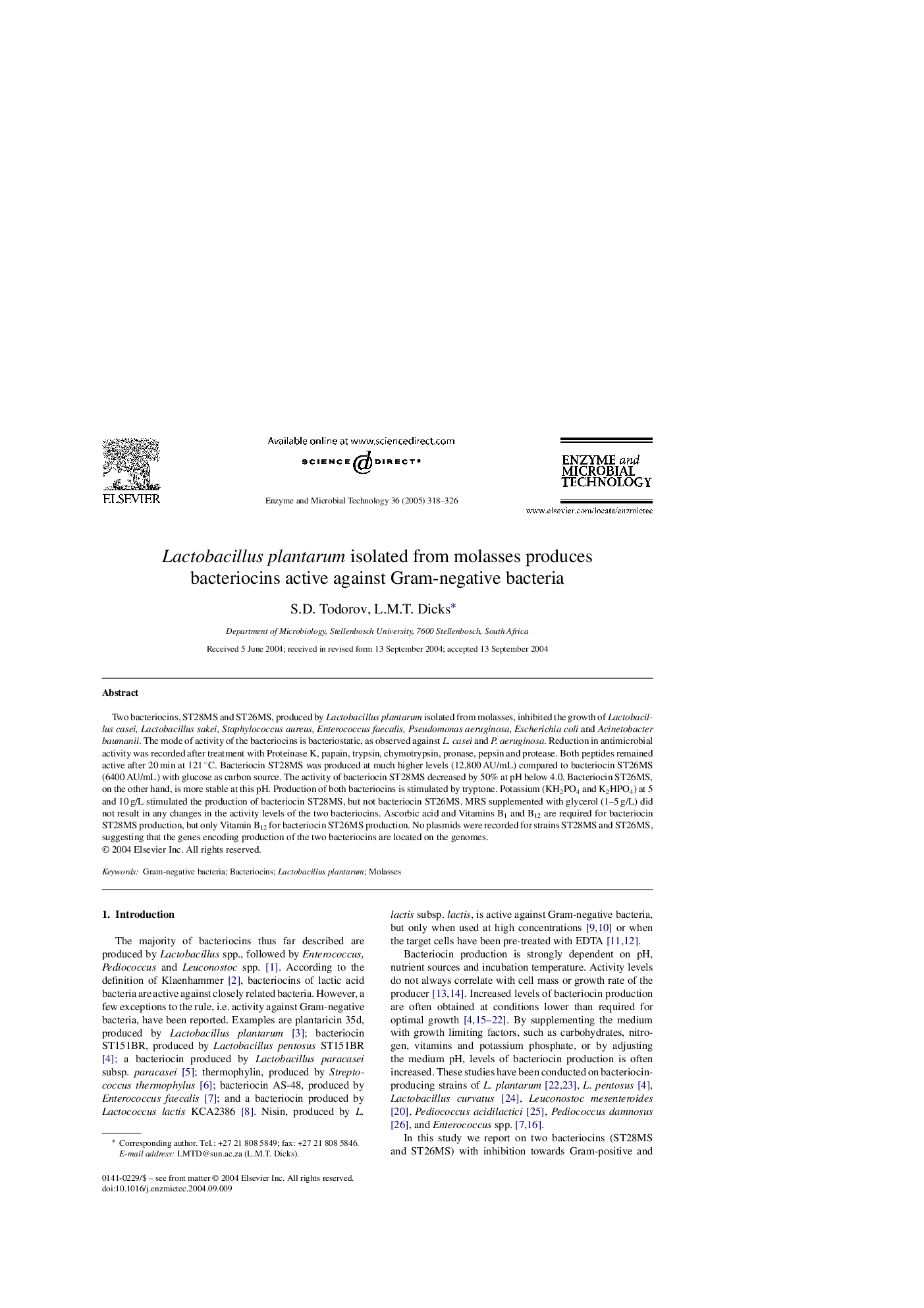| Article ID | Journal | Published Year | Pages | File Type |
|---|---|---|---|---|
| 9602691 | Enzyme and Microbial Technology | 2005 | 9 Pages |
Abstract
Two bacteriocins, ST28MS and ST26MS, produced by Lactobacillus plantarum isolated from molasses, inhibited the growth of Lactobacillus casei, Lactobacillus sakei, Staphylococcus aureus, Enterococcus faecalis, Pseudomonas aeruginosa, Escherichia coli and Acinetobacter baumanii. The mode of activity of the bacteriocins is bacteriostatic, as observed against L. casei and P. aeruginosa. Reduction in antimicrobial activity was recorded after treatment with Proteinase K, papain, trypsin, chymotrypsin, pronase, pepsin and protease. Both peptides remained active after 20 min at 121 °C. Bacteriocin ST28MS was produced at much higher levels (12,800 AU/mL) compared to bacteriocin ST26MS (6400 AU/mL) with glucose as carbon source. The activity of bacteriocin ST28MS decreased by 50% at pH below 4.0. Bacteriocin ST26MS, on the other hand, is more stable at this pH. Production of both bacteriocins is stimulated by tryptone. Potassium (KH2PO4 and K2HPO4) at 5 and 10 g/L stimulated the production of bacteriocin ST28MS, but not bacteriocin ST26MS. MRS supplemented with glycerol (1-5 g/L) did not result in any changes in the activity levels of the two bacteriocins. Ascorbic acid and Vitamins B1 and B12 are required for bacteriocin ST28MS production, but only Vitamin B12 for bacteriocin ST26MS production. No plasmids were recorded for strains ST28MS and ST26MS, suggesting that the genes encoding production of the two bacteriocins are located on the genomes.
Related Topics
Physical Sciences and Engineering
Chemical Engineering
Bioengineering
Authors
S.D. Todorov, L.M.T. Dicks,
